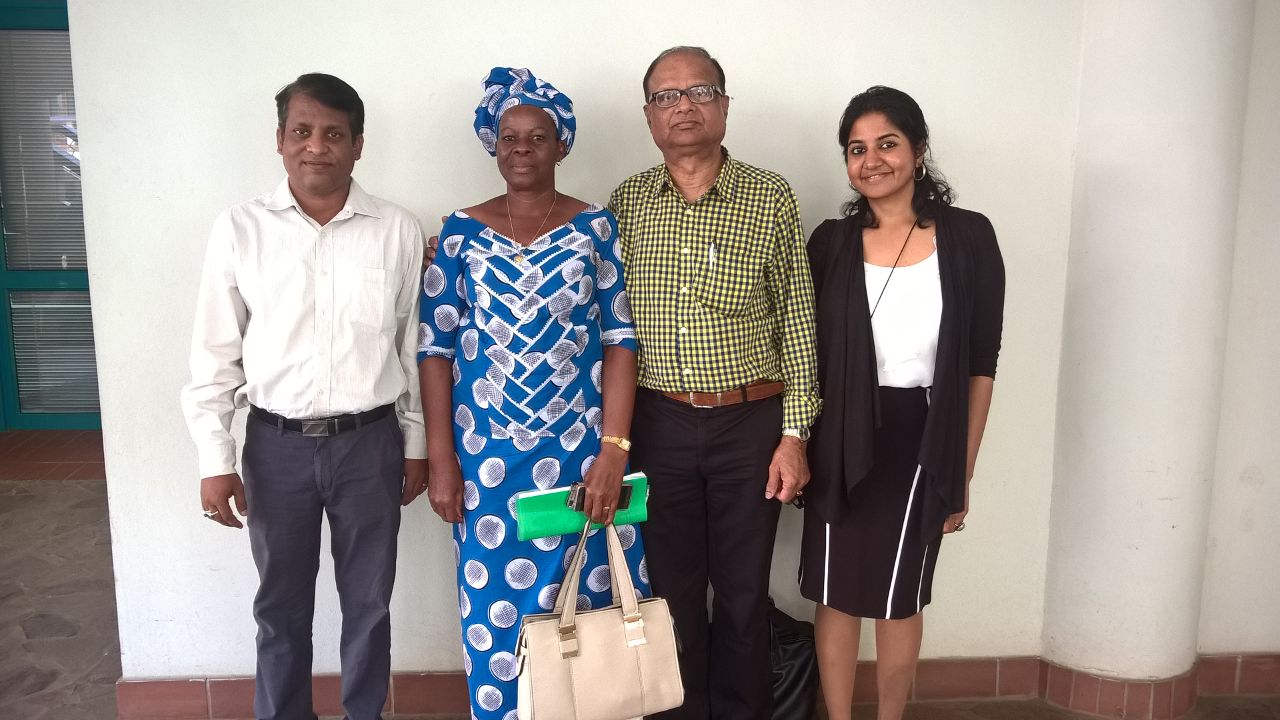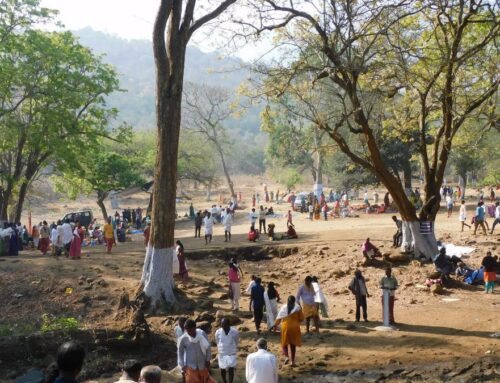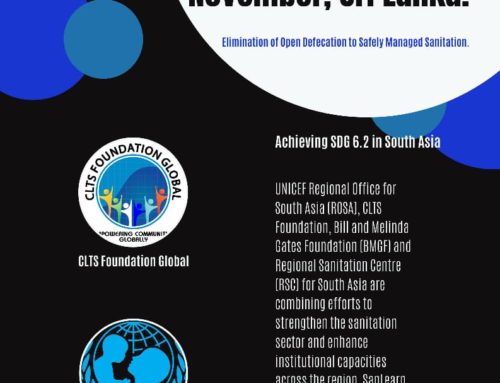
From Left to Right: The CLTS Foundation team with Ms Deolina, District Administrador of Guro District, Manica province , Mozambique (second from Left).
Three members from CLTS Foundation visited Mozambique from May 2nd to May 9th, 2015 in order to conduct a rapid assessment of the Rural Sanitation Programme in Mozambique using the CLTS Rapid Appraisal Protocol (CRAP) tool and to recommend strategies to scale up rural sanitation. During the exercise, the CLTS Foundation team visited ODF communities in 2 districts in Manica and Tete provinces, where CLTS is being implemented by UNICEF, and met with stakeholders at the national, provincial, district and community level.
During the MDG period, Mozambique has not fared well in the area of sanitation in spite of being one of the fastest growing economies of Africa with an annual growth rate of over 8%. The access to sanitation in rural areas is extremely poor. According to JMP report (2014), only 11% of the rural population, have access to basic sanitation with 52% of people still practicing open defecation in rural areas.
Due to the poor sanitation situation, the country is facing multiple critical challenges such as high stunting rate of 43% among children under 5 years of age and wasting rate of 5.9% (2011 DHS). Every year almost 14400 people including 10700 children die of diarrhoea. According to a study done by the Water and Sanitation (WSP) programme, poor sanitation costs Mozambique 4 billion Mozambican Meticals each year (equivalent to US$124 million). This sum is the equivalent of US$6 per person in Mozambique per year or 1.2% of the national GDP. Additionally an amount of US$22 million is spent each year on health care and an additional emergency response cost of US$5.1 million per year spent on cholera epidemics. These figures are alarming and call for urgent action to fight poor sanitation.
During the visit, the team met with the Governor of Tete Province, Mr Paulo Auade, and highlighted the need to prepare a provincial plan for the next 5 years that will work towards making Tete the first ODF province in Mozambique. Presently, Tete province has around 436 ODF communities, the highest among the 11 provinces in Mozambique. Drawing from the field visits, the team pointed out that a lot of good work was being done in Guro district of Manica province where the District Administrador, Ms Deolinda, was leading the cause of sanitation in her districts. The lessons from these ODF communities must be used to scale up CLTS in other provinces as well.

Mr Paulo Auade,Governor of Tête Province; Dr Kamal Kar, Chairman, CLTS Foundation and Mr Americo Muianga, Wash Specialist, UNICEF,Mozambique in a meeting




Leave A Comment